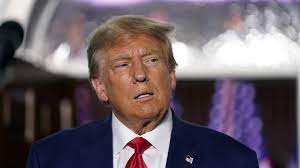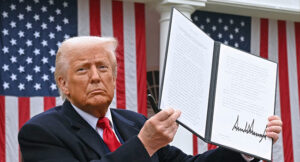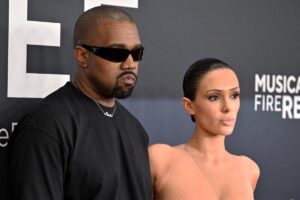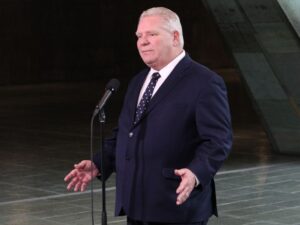
A United States Federal Appeals Court on Tuesday rejected Donald Trump’s broad claim that he is immune from prosecution for alleged criminal acts he committed as president in trying to overturn the 2020 election in a chain of events that led to the January 6 attack on the Capitol.
According to NBC News, Trump will almost certainly immediately appeal to the Supreme Court in a bid to prevent the trial from going ahead as scheduled.
The Supreme Court could make a quick decision on whether to hear the case and could fast-track any ruling the outlet reported.
The three-judge panel of the U.S. Circuit Court of Appeals for the District of Columbia ruled that there was no basis for Trump to assert that former presidents have blanket immunity from prosecution for any acts committed as president.
“For the purpose of this criminal case, former President Trump has become citizen Trump, with all of the defenses of any other criminal defendant. But any executive immunity that may have protected him while he served as President no longer protects him against this prosecution,” the ruling said.
The case is one of four criminal prosecutions Trump faces even as he remains the presumptive front-runner for the Republican presidential nomination.
A key issue is whether the trial can take place ahead of the election. Special counsel Jack Smith had asked the court to move quickly in a bid to keep the trial on schedule.
If Trump were to win the election, he would be in a position to either have the charges dismissed or potentially pardon himself.
Trump’s appeal arose from the four-count indictment in Washington, including charges of conspiracy to defraud the U.S. and conspiracy to obstruct an official proceeding. He has pleaded not guilty.
U.S. District Judge Tanya Chutkan in December rejected Trump’s plea to dismiss the indictment on presidential immunity and other constitutional grounds. The case is on hold while the appeals process plays out.
Trump’s lawyers have pointed to a 1982 Supreme Court ruling that endorsed presidential immunity from civil lawsuits when the underlying conduct concerns actions within the “outer perimeter” of the president’s official responsibilities. They have conceded that a former president can be prosecuted for conduct unrelated to official acts.
Trump has also argued that any prosecution is prohibited because he had not first been convicted in impeachment proceedings over the same underlying conduct.
Smith’s team argued that there is no broad immunity that prevents former presidents from being prosecuted for criminal acts committed in office.







